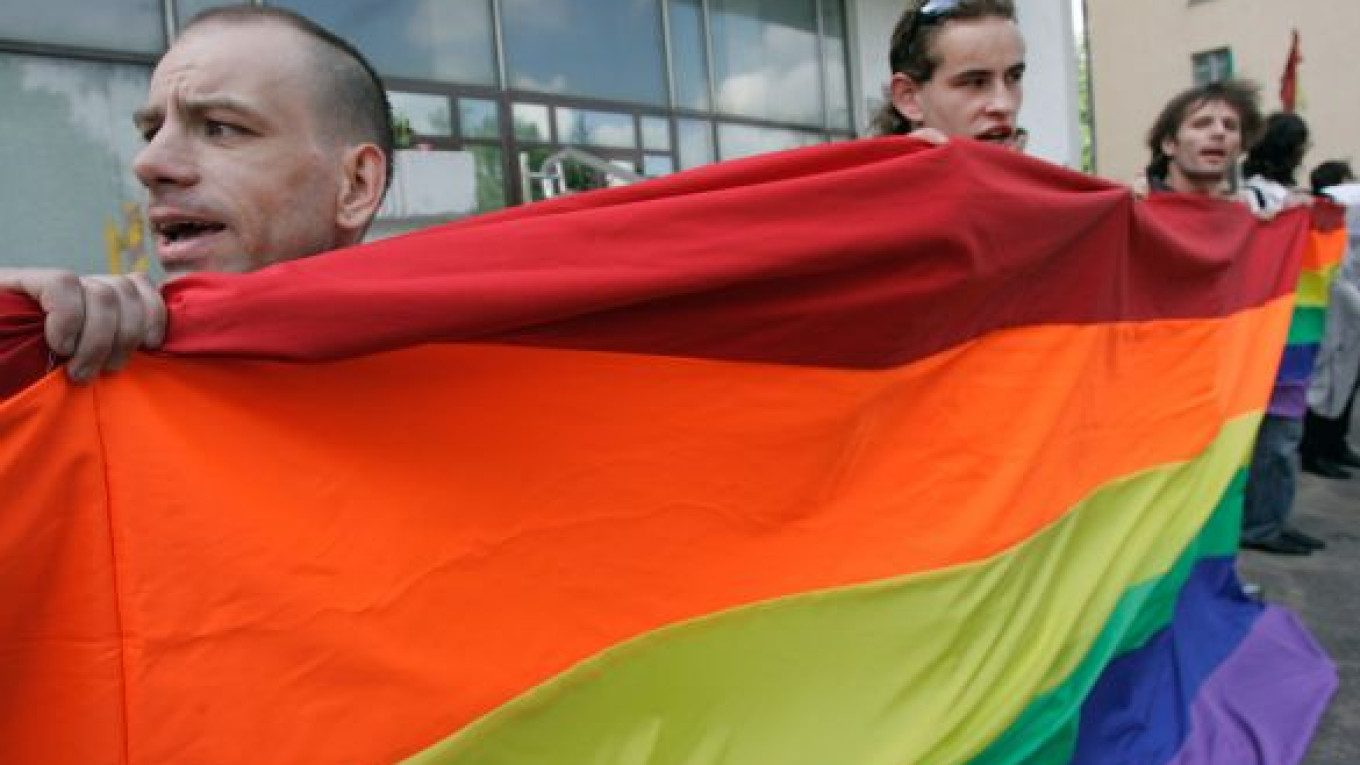MINSK — Belarussian police have broken up a gay pride demonstration by about 20 participants who defied an official ban to gather on a side street in central Minsk and march with bright rainbow flags.
Some carried handwritten signs saying, "Today they ban gays, tomorrow they will ban you," in a short-lived protest Saturday that was the first of its kind organized by the Russian and Belarussian Slavic Pride rights group in the capital.
Police wearing black berets and armed with batons moved in after the protesters advanced about 300 meters down the street. They tore away the flags and hauled off the marchers, some of whom had traveled from Russia for the event.
"The police reaction was completely disproportionate to the threat that they thought the protesters posed," Russian activist Nikolai Alexeyev said.
"There were 20 people there, behaving peacefully. There were no scuffles, and there was no basis for such a rough operation by the authorities," said Alexeyev, who has unsuccessfully tried to stage similar marches in Moscow.
Belarussian police were seen detaining five to 10 of the parade participants.
Homosexuality was decriminalized in the early 1990s, but as in Russia there is little official tolerance of any public show, and gay bars and other meeting places tend to be cautiously discreet.
Rights group Amnesty International issued a statement before the protest urging Minsk authorities to allow it to take place.
"The Belarussian authorities must demonstrate greater commitment to their human rights obligations, which clearly require the authorization of such events," said John Dalhuisen, Amnesty International's expert on discrimination in Europe. "The authorities' refusal constitutes a blatant disregard for equality and the full respect of human rights in Belarus."
A Message from The Moscow Times:
Dear readers,
We are facing unprecedented challenges. Russia's Prosecutor General's Office has designated The Moscow Times as an "undesirable" organization, criminalizing our work and putting our staff at risk of prosecution. This follows our earlier unjust labeling as a "foreign agent."
These actions are direct attempts to silence independent journalism in Russia. The authorities claim our work "discredits the decisions of the Russian leadership." We see things differently: we strive to provide accurate, unbiased reporting on Russia.
We, the journalists of The Moscow Times, refuse to be silenced. But to continue our work, we need your help.
Your support, no matter how small, makes a world of difference. If you can, please support us monthly starting from just $2. It's quick to set up, and every contribution makes a significant impact.
By supporting The Moscow Times, you're defending open, independent journalism in the face of repression. Thank you for standing with us.
Remind me later.


